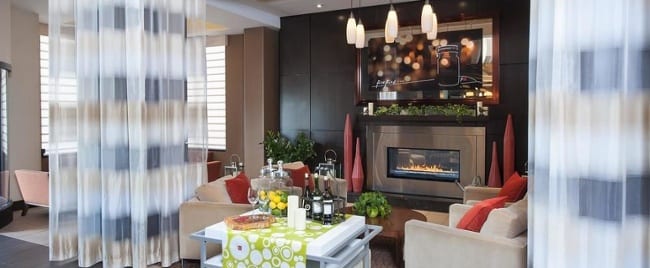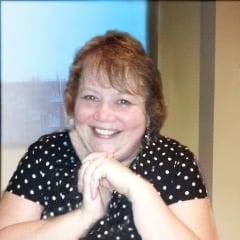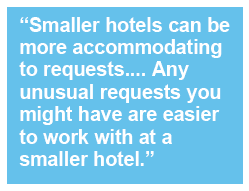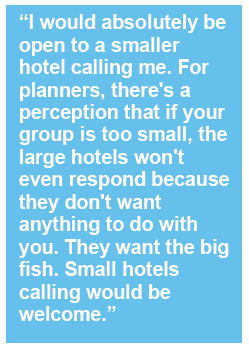Jill Burke is a planner-extraordinaire of sorts — a true Renaissance woman of the meetings professional industry.
Currently, Jill works for a non-profit foundation, but her planner resume includes independent consulting for major global companies as well as small a la carte planning services, planning meetings for multi-billion dollar agribusiness cooperatives, other management positions for third-party solutions organizations, and more.
We wanted a meeting planner’s perspective on what the main influencers are in the destination decision-making process. With her vast knowledge of the industry, Jill was the perfect candidate.

KL: Jill, when you’re looking for a venue for a group, do you always lean toward tier-one cities? Say, downtown upper upscale hotels with 15,000 square feet of meeting space?
JB: I would much prefer to have a space like Hilton Garden Inn. With many of my groups, we had people who were from rural areas. A lot of them didn’t want to go into the city or travel somewhere expensive with higher taxes. I would seek out suburban spaces that had walkable attractions. In those cases, though, it was sometimes hard to find enough space. Our groups were usually 25 to 50 people — 75 at largest. 
KL: The hotel construction pipeline is pumping a lot of new hotels into many major cities, driving competition up, which could bring lower rates. Would that make downtown metropolitan destinations more attractive?
JB: Not necessarily. For one company I worked for, Mosaic Mining Company, we looked for areas on the outskirts because the attendees traveled on the road a lot. It was easier to get out of the city from the outskirts than drive through city.
KL: Did that mean compromising on service at all?
JB: No. Smaller hotels can be more accommodating to requests. Hyatt Places are my new favorite. Some are limited on catering, but they’re far more flexible than, say, a hotel like the Hilton Chicago. This was essential when I worked for Land O’ Lakes and we wanted to bring in our own food and products. Any unusual requests you might have are easier to work with at a smaller hotel.

KL: What are some of your other top reasons for favoring smaller, maybe more suburban hotels over larger downtown properties?
JB: I liked that if we were the only group in the hotel, we got all the attention. Even if we were one of five, it felt like the staff was spread thin. The person assigned to you at a bigger venue may still have another group. You can tell they’re bouncing between you and someone else. They’d mix you up — “oh, that was the other group” — on stuff like menus and breaks. Or, it wouldn’t be clear what a break was or whose was whose when you’re on top of one another. Strange people would be helping themselves to your break because they didn’t know it wasn’t theirs!
KL: Yikes. Do you get preemptive calls from these smaller hotels looking for group business? Or do you mostly get calls from larger hotels?
JB: Larger hotels are more aggressive at calling us. I tend to go to the cities and CVBs to get all the information on hotels. But sometimes it feels like you’re setting appointments with large hotels you would never use because your groups aren’t that big.
KL: Would you be open to smaller hotels calling you?
JB: I would absolutely be open to a smaller hotel calling me. For planners, there’s a perception that if your group is too small, the large hotels won’t even respond because they don’t want anything to do with you. They want the big fish. Small hotels calling would be welcome.
KL: If these hotels called on you, what things could they say that would persuade you to book a meeting at their property?
JB: Lower rate is absolutely attractive at smaller, suburban hotels. That happened for us at a hotel in Duluth. We were trying to be close to the supporting organizations of a group for abused women. We looked in smaller towns close to the highway. In those cases, we would go with something like a branded Hilton Garden Inn because you know what kind of quality you can expect. We use the Hilton Garden Inn close by often and love it.
KL: Sounds like there are a lot of great things smaller hotels have to offer. I think they need encouragement from planners like you!
JB: They should certainly feel encouraged! They could benefit big time from new group business if they started being more aggressive and reaching out to planners. We’re usually happy to explore these options — and even happier to be in good hands with them.
KL: You heard the woman! Get on the phones! Here’s to you and other planners getting lots of proactive phone calls after this interview.
JB: Sounds good to me!
Interview conducted by Jim VanDevender, CMO at Knowland.
Want to be Knowland’s next success story? Let us know!
![]()
